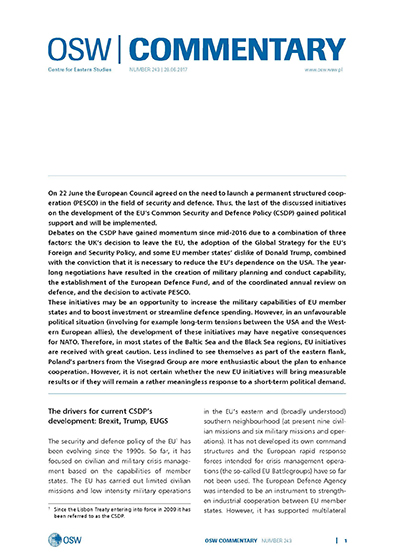Elections to the Bundestag: make or break for the liberal party
Elections to the Bundestag: make or break for the liberal party
Author(s): Artur Ciechanowicz
Subject(s): Governance, Public Administration, Public Law, Government/Political systems, Electoral systems
Published by: OSW Ośrodek Studiów Wschodnich im. Marka Karpia
Keywords: Elections to the Bundestag; liberal party
Summary/Abstract: Many commentators viewed the FDP’s defeat in the 2013 Bundestag elections, when the party failed to cross the 5% electoral threshold, as the end of the German liberal party. This view was further confirmed by another local election which the FDP lost, and by the dwindling number of party members. The FDP became a symbol of the maladies affecting German political life, and of politicians’ faults: clientelism, opportunism, a lack of direction and greed. The party had been present in the Bundestag for 64 subsequent years, and had been a member of government coalitions for 45 years. It also served as the power base for two presidents of Germany, as well as for Hans-Dietrich Genscher, for many years Germany’s foreign minister. However, during a period of just four years (2009–2013), when it co-ruled the country alongside the CDU/CSU, the FDP became unelectable.Regardless of the fact that the party has no representation in the Bundestag and that many prominent activists have left its ranks, the FDP’s new leader, Christian Lindner, has managed to regain the attention of the national media and radically change the party’s image. Back in October 2014, the FDP had deputies in six local parliaments and was not a member of any coalition; at present, however, the FDP has representatives in nine out of 16 local parliaments and is a member of ruling coalitions in Rhineland-Palatinate, North Rhine-Westphalia and Schleswig-Holstein. If the elections to the Bundestag had been held on Sunday, 27 August 2017, the party would have garnered around 8% of the votes. It could also have hoped to form a ruling coalition with the Christian Democrats. A political alliance with the SPD would be less likely. However, should the FDP lose approval in the final weeks of the campaign and fail to bring its representatives into parliament again, it will be extremely difficult for the party to survive for another four years.
Series: OSW Commentary
- Page Count: 6
- Publication Year: 2017
- Language: English
- Content File-PDF

